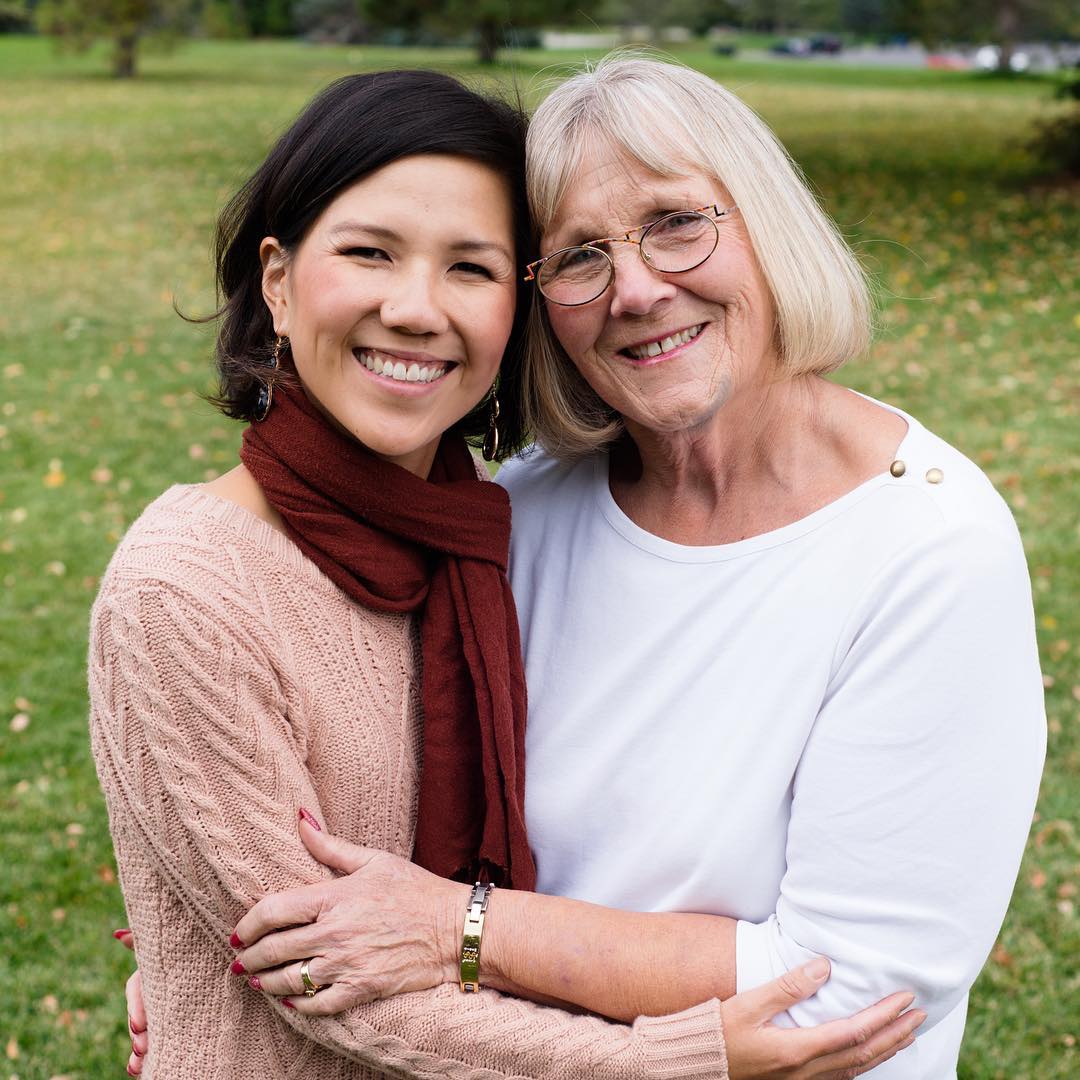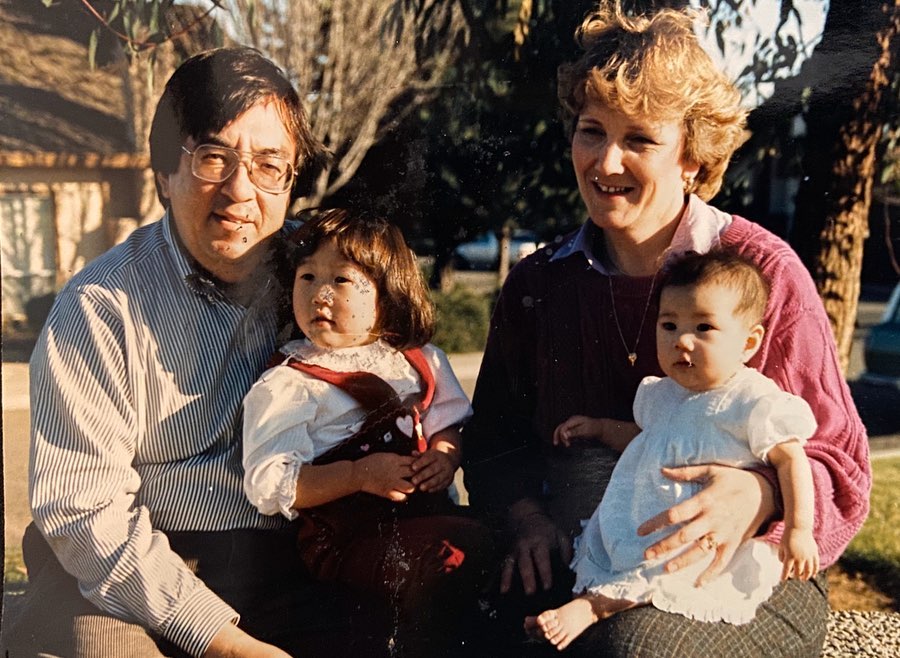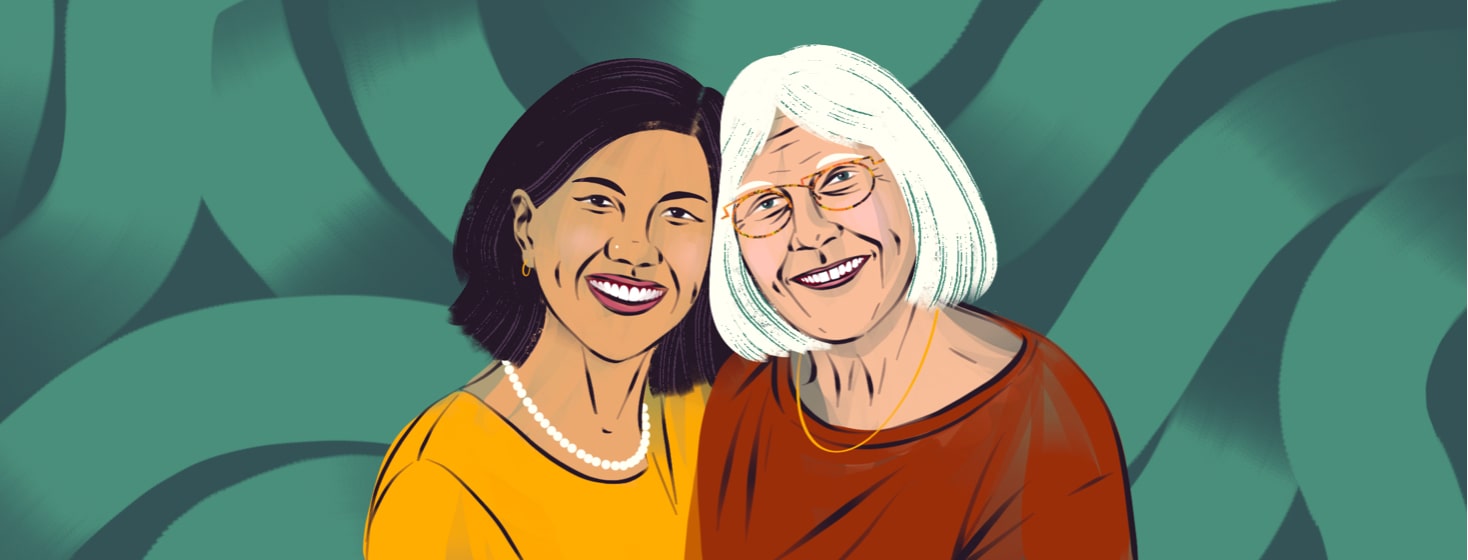Interview with Kelsey Ramos Conroy
The Editorial Team at AlzheimersDisease.net is highlighting people in the Alzheimer's community and their journeys in a series of Instagram interviews. We talked to Kelsey Ramos Conroy, aka @kelseyramosconroy, about what it has been like to be a caregiver for her mom.
The beginning
Editorial: What is your mom's Alzheimer's diagnosis story?
Kelsey: My dad passed away unexpectedly in 2011, and my mom was shaken and struggled with a lot of confusion and overwhelm. I was a long-distance caregiver for my mom, and the rest of her family and I started noticing symptoms of dementia in 2015, like getting lost going to familiar places, more serious memory problems, and changes in her personality.
She was tested in 2017 and diagnosed with mild cognitive impairment, and the following year, stopped driving at the recommendation of her neurologist. Throughout this, my mom did not feel she had any memory problems. That diagnosis changed to Alzheimer's dementia in 2020 as her symptoms got worse.
Even though I called her every day during the pandemic, she spent a lot of time alone and was displaying poor judgment about hazardous situations (like leaving candles burning when she left the house). When we discovered she’d had a rat infestation in her home that had gotten worse and worse, we made plans to follow her pre-dementia wishes to move out to live with my family. She now lives with us and is doing very well.

Experience with doctors
Editorial: Have doctors given her the support she needs through her progression?
Kelsey: Some of my mom’s doctors have been wonderful and supportive and respectful, and some have not. We had one neurologist who talked mostly to me during the appointments and belittled my mom for not doing well on her mini-MOCA memory test. Her current neurologist and geriatrician focus on my mom and her wishes, and speak respectfully to her like the independent person she still is, while also allowing me to weigh in and express any concerns. I personally have also received a lot of support from the Alzheimer’s Association 24/7 hotline.
What family members should know
Editorial: What should someone whose loved one has just been diagnosed with Alzheimer's know? Is there any advice in particular that you have to share?
Kelsey: The most important thing is to find a support group. Being a part of a support group is invaluable for the mental and emotional aspects of caregiving, because you can feel so alone and overwhelmed, and a local one can give practical advice about nearby resources. The Alzheimer’s Association offers many groups, and some are specific to the type of dementia or caregiver. Many groups are still on Zoom, so you don't even have to leave your home.
The second thing is to build your support team. You cannot do this alone, and even with your spouse or extended family’s support, you need to have a contingency plan. I cannot stress how important having paperwork in order is. Dementia is a beast and getting paperwork in order is a bit of a ticking clock because some documents aren't valid if they are signed after a diagnosis. Find the best lawyer you can afford, make sure he/she specializes in probate or elder care, and get it done. A ton of my anxiety was relieved knowing I had everything in place as her disease progressed.
Yes, it's awkward to have "the talk" about what happens when your loved one dies. But there are also so many decisions about their care while still alive. Your loved one has a right to have control over his/her own decisions for care and property, and might just need some encouragement to get it done. Make sure to include family members in these talks if your loved one wants that. I was in an attorney's office and was yelled at by family, but now I can always say that they were present and nothing was hidden from them.
Your support system
You might not need all these people on your team, but this was who I found valuable:
- Professional support team: Elder care law attorney, financial advisor (helpful no matter the size of the estate), tax accountant (needs to be knowledgeable about probate and trusts)
- Personal support team: Respite caregivers (whether extended family, friends, or paid professionals), support group, friends to talk to about caregiving, and therapist.
Sharing about Alzheimer's on Instagram
Editorial: What led you to share about Alzheimer's on Instagram?
Kelsey: I decided to write about Alzheimer’s because I know so few millennials who are caring simultaneously for aging parents and young children, and I wanted to start a community in hopes of encouraging someone else and raising awareness of the disease. I want caregivers to not feel so alone, and I pray that one day we will find a cure.
Seeing other caregivers on Instagram who are going through similar journeys gets me through the hard times and gives me practical ideas about how to work through the challenges.
Adoption
Editorial: Has being adopted impacted how Alzheimer's affects you?
Kelsey: Many adoptees have nontraditional parents. By the time I met my new family as a 6-month-old baby from South Korea, my mother was 43 and my dad was 37. I lost my remaining grandparents by the time I was in college. When my dad died suddenly a month after my wedding and my mom started developing dementia, I was finally old enough to care about the stories but now watched them slip through my hands like hourglass sand.

Being in the sandwich generation
Having my own children had brought to the surface the loss of having elderly adoptive parents, the loss of my own Korean birth family and heritage and culture, and the loss of a rich legacy for my children. It was an avalanche of grief, accelerating and mounting higher and deeper.
As part of the sandwich generation of caregivers, I care for my mom with Alzheimer’s and my 3 young children under the same roof. Sometimes it is very overwhelming, but I have a great support team in my husband and friends and therapist, and my husband and I feel very strongly that it is one of the greatest honors of our lives to be able to care for my mom in her time of need as she cared for me for so many years. I have a deep faith in God, who never leaves me, gives me peace, and carries me through it all.
Parting advice
Don’t be afraid to ask for help. You cannot do this alone, and it’s not good for you to try. I am juggling young children, full-time caregiving for my mom, and the other responsibilities of life, and it was still very hard for me to admit I needed help. But my support group encouraged me and made me see that I don’t need to feel guilty. I hired a part-time caregiver to help me drive my mom to her gym and activities. I asked some church ladies, who were happy to come sit and chat with my mom on a regular basis and give me a short break. And it made such a difference to both me and my mom, as she’s now able to do more things and live a richer life than if I put the burden all on myself. Take care of yourself and you can do this!
You can follow Kelsey's caregiver journey on Instagram as well as her blog.

Join the conversation